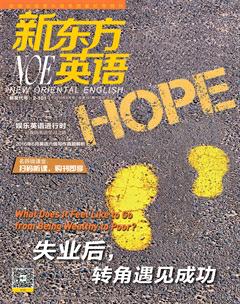《不存在的女孩》:和解只需刹那
王和平
露丝·尾关(Ruth Ozeki),当代美国与加拿大文坛极受瞩目的作家之一,1956年出生于美国康涅狄格州纽黑文市,父亲是美国人,母亲是日本人。尾关曾于美国史密斯学院攻读英语及亚洲研究专业,后前往日本的奈良大学进修日本古典文学。在日本生活期间,她曾以一名酒吧主人的身份居住在京都,并潜心学习插花、能剧与面具雕刻。在成为一名小说家之前,尾关还是一名电影制片人,制作了数部独立电影,其中影响最大的是她的自传电影《分骨》(Halving the Bones)。1998年,尾关的小说处女作《食肉之年》(My Year of Meats)问世,并于当年入选《纽约时报》(New York Times)年度好书。2003年,她发表了第二部小说《大千世界》(All over Creation),同样广受好评。《不存在的女孩》(A Tale for the Time Being)于2013年出版,是尾关迄今为止最受热捧的一部作品,曾入围英国布克奖短名单、美国国家书评人奖决选名单,并荣获美国图书馆协会最佳小说奖等十几个重量级文学奖项。
Excerpts1)
She closed the diary and placed it on the desk as she stroked2) the cats forehead, but even after putting the book aside, she was aware of an odd and lingering sense of urgency to … what? To help the girl? To save her? Ridiculous.

《不存在的女孩》英文版封面
Her first impulse when shed started the diary was to read quickly to the end, but the girls handwriting was often hard to decipher3), and her sentences were peppered with slang and intriguing colloquialisms. It had been years since Ruth had lived in Japan, and while she still had a reasonable command of the spoken language, her vocabulary was out of date. In university, Ruth had studied the Japanese classics—The Tale of Genji4), Noh drama5), The Pillow Book6)—literature going back hundreds and even thousands of years, but she was only vaguely familiar with Japanese pop culture. Sometimes the girl made an effort to explain, but often she didnt bother, so Ruth found herself logging on to the internet to investigate and verify the girls references, and before long, she had dragged out her old kanji7) dictionary, and was translating and annotating and scribbling notes about Akiba8) and maid cafés, otaku9) and hentai10). And then there was the anarchist feminist Zen Buddhist novelist nun.
She leaned forward and did an Amazon search for Jiko Yasutani11) but, as Nao had warned, found nothing. She googled Nao Yasutani and again came up with nothing.
She had better luck with Dgen12), whose masterwork, Shbgenz, or the Treasury of the True Dharma13) Eye, did have an Amazon ranking, albeit nowhere near Proust14)s. Of course, hed lived in the early thirteenth century, so he was older than Proust by almost seven hundred years. When she searched for “time being,” she learned that the phrase was used in the English title of Chapter 11 of the Shbgenz, and she was able to locate several translations, along with commentaries, online. The ancient Zen master had a nuanced and complex notion of time that she found poetic but somewhat opaque15). “Time itself is being,” he wrote, “and all being is time … In essence, everything in the entire universe is intimately linked with each other as moments in time, continuous and separate.”
Ruth took off her glasses and rubbed her eyes. She took a sip of tea, her head so full of questions she barely noticed the tea had long grown cold. Who was this Nao Yasutani, and where was she now? While the girl hadnt come right out and said she was going to commit suicide, shed certainly implied as much. Was she sitting on the edge of a mattress somewhere, fingering a bottle of pills and a tall glass of water? Or had that hentai gotten to her first? Or perhaps she had decided not to kill herself, only to fall victim to the earthquake and tsunami instead, although that didnt make a lot of sense. The tsunami was in Tohoku, in northern Japan. Nao was writing in a maid café in Tokyo. What was she doing at that maid café in the first place? Fifis16)? It sounded like a brothel17).
She sat back in her chair and gazed out the window at the tiny stretch of horizon that she could see through a gap in the tall trees. “A pine tree is time,” Dgen had written, “and bamboo is time. Mountains are time. Oceans are time …” Dark clouds hung low in the sky, forming an almost indiscernible line where they met the still, dull sheen18) of the ocean. Gunmetal grey19). On the far side of the Pacific lay the battered Japanese coastline. Entire towns had been crushed and dragged out to sea. “If time is annihilated20), mountains and oceans are annihilated.” Was the girl out there somewhere in all that water, her body decomposed by now, redistributed by the waves?
She picked up the diary and, using the side of her thumb, started riffling through the pages. She wasnt reading, in fact she was trying not to. She only wanted to ascertain whether the handwriting continued all the way to the end, or if it petered out21) partway through. How many diaries and journals had she herself started and then abandoned? How many aborted novels languished in folders on her hard drive? But to her surprise, although the color of the ink occasionally bled from purple to pink to black to blue and back to purple again, the writing itself never faltered22), growing smaller and if anything even denser, straight through to the very last, tightly packed page. The girl had run out of paper before she ran out of words.
And then?
Ruth snapped the book shut and closed her eyes for good measure23) to keep herself from cheating and reading the final sentence, but the question lingered, floating like a retinal24) burn25) in the darkness of her mind: What happens in the end?
1.英文节选部分选自小说开头,描写了露丝(Ruth)在阅读安谷奈绪(Nao Yasutani)日记的过程中,开始担忧奈绪的命运。该部分文字有删节。
2.stroke [str??k] vt. (温柔地)抚摸
3.decipher [d??sa?f?(r)] vt. 辨认
4.The Tale of Genji:《源氏物语》,日本古典文学名著,反映了日本平安时代的宫廷生活。
5.Noh drama:能剧,日本传统戏剧,以日本传统文学作品为脚本,在表演形式上辅以面具、服装、道具和舞蹈,起源于公元8世纪。
6.The Pillow Book:《枕草子》,日本平安时期女作家清少纳言的随笔集
7.kanji:(日语中使用的)汉字体系
8.Akiba:秋叶原,日本东京著名的电器大街
9.otaku:御宅族,源于日语,起初指痴迷动漫和电子游戏的人,后泛指沉迷于某种文化并对其有深入研究的人,如“体育宅”“枪械宅”“摄影宅”等,这种人在与他人沟通时或有障碍。
10.hentai:日语,意为“变态”。
11.Jiko Yasutani:安谷己子,奈绪的曾祖母
12.Dgen:道元和尚,日本佛教曹洞宗创始人,日本佛学史上最富哲理的思想家,代表作为《正法眼藏》(Shbgenz)。
13.Dharma:(佛教中的)法,达摩(指佛法或一切事物和现象)
14.Proust:即马塞尔·普鲁斯特(Marcel Proust, 1871~1922),20世纪法国最伟大的小说家之一,代表作为《追忆似水年华》(Remembrance of Things Past)。
15.opaque [???pe?k] adj. 晦涩的,难理解的
16.Fifis:菲菲,奈绪在日记中提到的女仆咖啡店的名字
17.brothel [?br?θ(?)l] n. 妓院
18.sheen [?i?n] n. 光彩;光辉
19.gunmetal grey:炮铜色(一种黑灰色或蓝灰色)
20.annihilate [??na??le?t] vt. [物]湮灭,湮没
21.peter out:逐渐消失
22.falter [?f??lt?(r)] vi. 踌躇;犹豫;结结巴巴地说
23.for good measure:作为外加(或意外)的东西,另外
24.retinal [?ret?n?l] adj. [解]视网膜的
25.burn [b??(r)n] n. 烙印
作品赏析
普鲁斯特与网络流行文化,校园霸凌与失业白领自杀,二战时期日本的神风特攻队与现代恐怖袭击,禅与量子力学……如果你想象不出如此之多的元素杂糅在一起的样子,那一定是因为你还未读过露丝·尾关的力作《不存在的女孩》。出生于一个由美国人和日本人组成的家庭之中,尾关和许多北美新移民作家一样,显示出自身关于西方社会和东方文化的双重经验。这一身份也让她在审视现代人所面临的同质性的生存困境以及探索可能的救赎之道时处于天然的高地,这一点在小说中表现得可谓淋漓尽致。
小说设置了一个与作者本人姓名相同,家庭背景和经历也与作者相仿的观察者,即小说家露丝。她跟随丈夫从美国纽约迁居到加拿大一座叫“荒凉湾”的偏僻小岛上生活。一天在海边散步时,露丝捡到一个被藤壶覆盖的塑料冷藏袋,里面整齐地放着三样东西:一小沓手写的信件、一个日记本以及一只古董手表。随着露丝有计划地阅读日记和信件以及循着蛛丝马迹对失物原主人进行搜索,一个关于16岁日本女中学生安谷奈绪及其家族的故事逐渐显露出了全貌。
安谷奈绪在美国加州一个叫阳光谷的小镇上长大,后因父亲安谷春树(春树二号)意外失业随父母迁回日本东京。正处于叛逆期的奈绪无法接受生活的巨大变化,不仅与原来阳光谷的伙伴们渐行渐远,更因东京新同学花样百出的霸凌而遭受身心重创。而一直找不到工作的春树二号也始终萎靡不振,每天打着上班的幌子跑去公园研究赛马新闻和喂乌鸦,后来尝试卧轨自杀未果,最终沦为沉迷于哲学和折纸游戏的蛰居者。家庭变故和校园遭遇让奈绪显出与她年纪极不相符的早熟和阴郁。直到奈绪的曾祖母——已经104岁的佛教比丘尼安谷己子——带着她和整个安谷家族的故事出现,奈绪那几近窒息的生活才透进一丝光亮。
老己子是一个复杂且充满神秘色彩的人物,她曾是大正时代(编注:1912~1926年间日本大正天皇在位时的盛世)著名的无政府主义者、女权主义者及小说家,同时通晓禅家教法。老己子唯一的儿子安谷春树(春树一号,即春树二号的舅舅),原本是东京大学哲学系的学生,二战爆发后被强征加入神风特攻队,成为一名人肉炸弹,最终驾驶战机撞向美军的战舰。自从失去独子之后,老己子隐居到宫城县一座深藏于森林中的寺庙里参禅修行。奈绪应曾祖母之邀在这里度过了一个暑假。幽静的山林生活和老己子的智慧点拨让奈绪恢复了些许元气,也让她与家族历史间建立了牢不可破的精神联结。
然而,暑假结束,回归日常生活后的奈绪发现,世界并无不同。美国“9·11”事件的爆发令全世界陷入新一轮的恐慌;校园霸凌也丝毫没有停止的迹象,奈绪的同学甚至将奈绪月经时穿的内裤放到网上竞拍;本就颓废不堪的春树二号在得知此事后因自责而实施了第二次没能成功的自杀。奈绪的生活再次跌至谷底,再也不愿返回学校的奈绪选择了辍学。辍学后的她经邻居介绍成为秋叶原女仆餐厅的一名援助交际。没有“工作”的时候,奈绪就在这家餐厅写露丝读到的那本日记。奈绪就这样过着颓废的生活,直到老己子去世的消息传来……截至此时,对生活感到绝望的奈绪和春树二号都已各自做出了结束生命的决定。
像是一根即将断线的风筝,安谷一家的命运在狂风中飘摇动荡,而日记叙述到这里也戛然而止。作为读者的露丝却不能接受这样的结尾,因为担心奈绪及其父亲会自杀,露丝一直尝试各种办法去追寻安谷一家的下落。阅读日记的过程不断将露丝推向奈绪所处的时空,日记里那个迷惘的日本少女仿佛是露丝自身的镜像:从繁华的纽约搬到偏僻的荒岛,露丝不仅在写作方面灵感全无,与身为艺术家的丈夫也是摩擦不断,生活对露丝来说逼仄、苦闷,仿佛魔咒一般。此外,露丝在调查的过程中还获悉了安谷家的两个秘密:一、痛恨战争的春树一号最终并未按命令实施自杀式袭击,而是选择驾驶战机直接冲进海洋;二、春树二号丢掉工作的真实原因是他不愿做美国政府的帮凶,拒绝将自己设计的游戏界面应用于训练士兵杀人的装置。对于这两个秘密,奈绪显然都不知晓。于此关键时刻,内心焦急的露丝竟经由一个神奇的梦境“穿越时空”,干预到奈绪一家所处的文本世界,最终通过揭示那两个秘密扭转了故事的走向。
事实上,对“时空”的处理是作者最用心良苦之处,也是这本小说最具玄幻色彩的地方。这本书的英文名为“A Tale for the Time Being”,即“一个关于时在的故事”。根据禅的理念,时间由无数个刹那连接而成,每一个刹那都是一个独立的存在,转瞬即逝却也凝驻永恒。道元禅师曾说:“时间本身即是存在,且所有存在也是时间。”这便是“时在”。道元的禅语为我们另眼看时间提供了新的维度,也为小说中两个平行时空的交错提供了理论的可能:奈绪日记的叙述时态从过去愈发推向现在,露丝也从一个无为的阅读者变成举足轻重的参与者,最终经由梦境置身奈绪的“时在”,制止了春树二号的自杀计划,进而挽救了奈绪年轻的生命。当露丝从梦境中醒来,戛然而止的日记又有了新的内容。奈绪和父亲都遵循了老己子“生”(即活下去)的遗言,放下过去,开始了新的生活。与此同时,露丝也经历了一次焕然的新生。两位女性通过写作和阅读的交互,穿越时空实现了对彼此的救赎。似乎仅凭刹那间的四两拨千斤之力,两位素未谋面却命运相连的女性于挫败、虚空的生活中出离,达致与自身、与他人、与世界的和解。
在这个令人目眩神迷的文本世界中,借奈绪之笔与露丝之眼,作者在揭示世界本质的同时,也始终在真诚地建构让我们得以逃离虚无的诗意通道。正如海德格尔的“向死而生”哲学所主张的那样,面对命运的无常,越是懂得死亡的不可避免,越要珍惜每一个真实存在的刹那;越是洞悉生命的荒谬与虚无,越要在极其有限的时空里做出最有意义的选择。就像春树一号选择了良知,老己子选择了宽恕,春树二号选择了责任,奈绪选择了重生,露丝选择了善意和爱。无论是面对沉重的历史还是惨淡的现实,是群体的迷茫还是个体的危机,人类面临的困境各不相同却也殊途同归。而作者露丝·尾关相信,东方禅学特有的温柔和慈悲可以带领人们穿过迷雾,在内省和顿悟中找寻到生存的意义,让我们回归原初之心,与世界重归于好,与自己安然相处,在当下,就在此刻!

